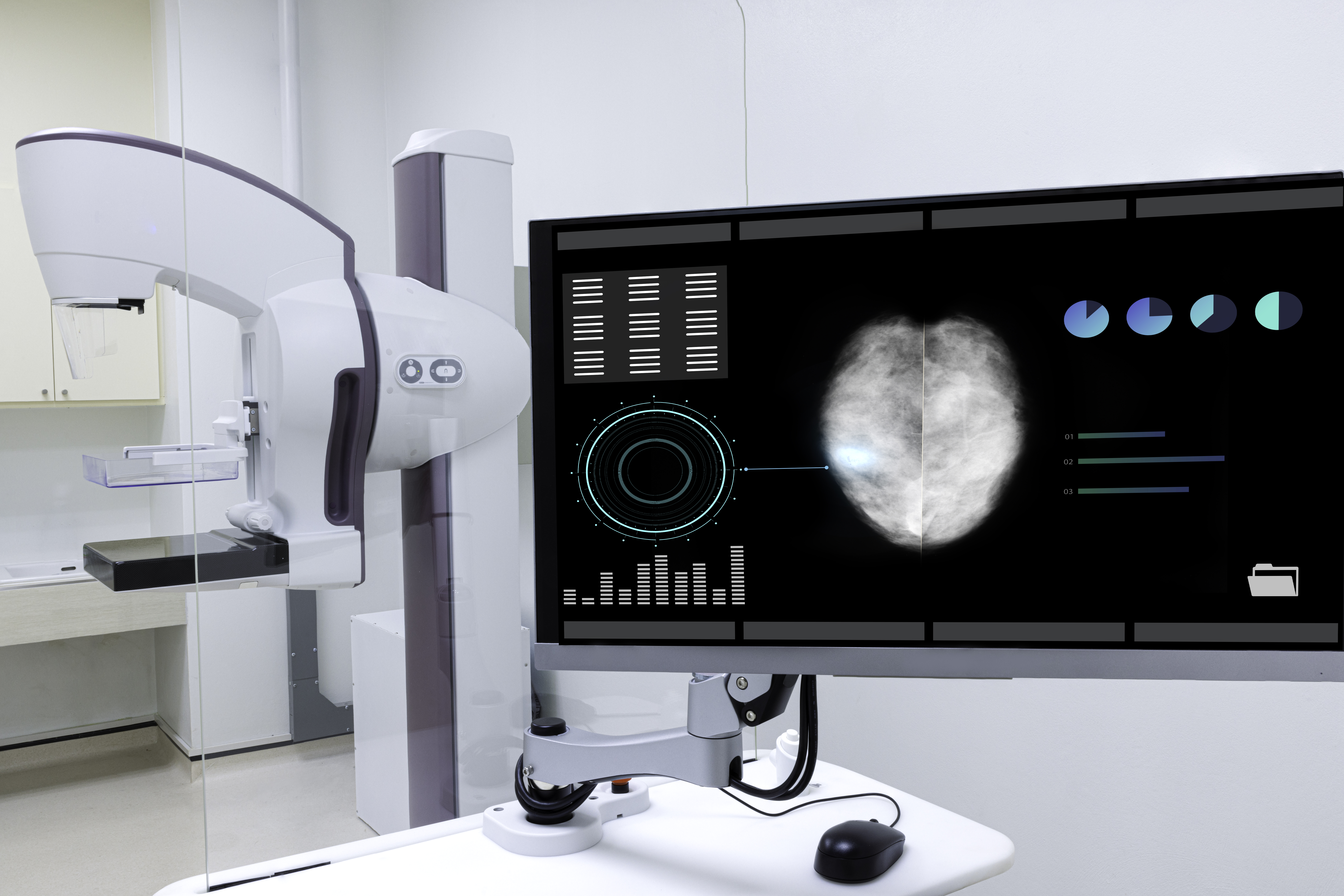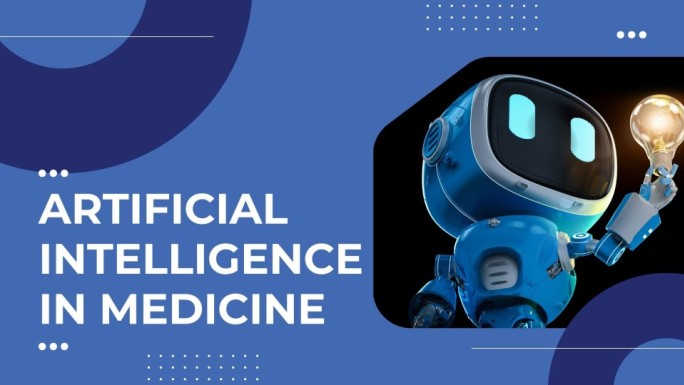AI in healthcare 2024: 5 latest trends you don’t want to miss
In the dynamic world of healthcare, artificial intelligence (AI) has emerged as a game-changer, transforming the way we diagnose, treat, and care for patients. With AI technologies advancing rapidly, it's more important than ever for healthcare professionals, researchers, and patients to keep up with the latest industry trends.
This blog aims to explore five groundbreaking trends in AI healthcare that are reshaping the landscape. The significance of each trend, examining how AI is driving its implementation, and highlighting real-world examples of its impact will be included in this exploration.
Let’s follow us to uncover them!
The current state of AI in healthcare
First, let's take a look at how this industry progresses incredibly before exploring the many AI trends in healthcare.
There has been a significant surge in the integration of artificial intelligence (AI) within the healthcare sector. The global artificial intelligence in healthcare market size was estimated at USD 22.45 billion in 2023 and is expected to expand at a compound annual growth rate (CAGR) of 36.4% from 2024 to 2030. (Grand View Research)
According to Grand View Research, North America dominated the market in 2023 and held the largest revenue share of 57.7%. Meanwhile, the fastest-growing market is Asia Pacific. It is anticipated to register the fastest CAGR of 40.1% over the forecast period.
Emerging AI Trends in Healthcare
It’s obvious that AI is becoming more widespread in healthcare and if you want to stay ahead of the curve, these trends won’t let you down.
1. Personalized Medicine
A notable trend in healthcare is the rise of personalized medicine, fueled by advancements in Drug Information Systems and our understanding of genetics.
Personalized medicine represents a groundbreaking leap forward in healthcare innovation, marking a departure from the conventional one-size-fits-all treatment paradigm towards a more refined and individualized approach. This progressive model takes into account the distinctive genetic makeup, lifestyle factors, and environmental influences of each patient.
One example of AI in personalized medicine is in the field of oncology. AI algorithms can analyze a patient's genetic information, tumor characteristics, and treatment history to tailor cancer treatment plans to each individual's specific needs. For instance, AI can help oncologists predict which patients are more likely to respond to certain cancer therapies based on genetic mutations or biomarkers present in their tumors. This allows for the selection of the most effective treatment options while minimizing potential side effects.
Whether it involves tailoring cancer therapies based on tumor genetics or fine-tuning medication plans to align with a patient's genetic predispositions, AI-powered personalized medicine holds tremendous potential to transform healthcare delivery. By delivering care meticulously tailored to the individual needs of each patient, this innovative approach promises to revolutionize clinical outcomes and redefine the standard of healthcare excellence.

2. Predictive Analytics for Early Disease Detection
Secondly, predictive analytics is a revolutionary tool in healthcare, using artificial intelligence to spot potential health risks well before any symptoms appear. By sifting through extensive datasets covering patient details like age, medical history, genetics, and lifestyle habits, AI algorithms can pick up on subtle clues that might indicate the beginnings of illnesses such as cancer, heart conditions, or neurological disorders.
For instance, AI algorithms can detect patterns in electrocardiogram (ECG) data to identify irregular heart rhythms or signs of impending cardiac events. By analyzing trends over time, AI can alert healthcare providers to potential health risks before symptoms manifest, allowing for early intervention and preventive measures to be implemented.
This proactive approach allows healthcare providers to step in early, providing timely treatments and preventive measures to halt the progress of diseases and enhance patient outcomes. By forecasting health trajectories and anticipating potential issues, predictive analytics can change healthcare from a reactive system to a proactive one, ultimately saving lives and easing the strain on healthcare systems.
3. Virtual Health Assistants and Chatbots
Virtual health assistants and chatbots are changing how patients interact with healthcare providers. They provide support around the clock, personalized guidance, and instant access to medical info.
These digital helpers, powered by AI, can chat like real people, understanding patient questions and giving timely advice. From booking appointments to answering medical questions and reminding about medications, these assistants boost patient engagement, make healthcare more accessible, and simplify tasks for providers.
One example of virtual health assistants and chatbots is the use of AI-powered platforms to provide remote patient support and guidance. For instance, a virtual health assistant could be integrated into a healthcare provider's website or mobile app, allowing patients to ask questions, schedule appointments, or request medication refills through natural language interactions.
4. Medical Imaging and Diagnostics
One of the most prominent trends in healthcare is the integration of artificial intelligence in medical imaging and diagnostics. This revolution is reshaping how healthcare professionals interpret and utilize imaging data to diagnose and treat patients.
With AI algorithms at the helm, medical imaging has become more accurate and efficient than ever before. These algorithms can analyze vast amounts of data from X-rays, MRIs, CT scans, and other imaging modalities, swiftly detecting abnormalities and prioritizing urgent cases.

For instance, AI-powered image analysis can help identify early signs of cancer, fractures, or other abnormalities in medical imaging scans with high accuracy and efficiency. By highlighting areas of concern or flagging suspicious findings, AI algorithms can assist radiologists in prioritizing cases, reducing interpretation errors, and expediting diagnosis and treatment planning.
5. Drug Discovery and Development
A game-changing trend in healthcare is the use of artificial intelligence (AI) in drug discovery and development. This shift is transforming how new medications are found and made available to patients. AI algorithms analyze huge amounts of data, like genetic info and clinical trial results, to pinpoint potential drug candidates and predict how well they might work and their safety.
By speeding up this process, AI cuts down the time and cost of bringing new drugs to market. It also helps identify new targets for drugs and repurpose existing ones for different uses. As AI technology gets better, its integration in drug discovery offers the promise of more effective and personalized treatments, ultimately benefiting patients worldwide.
In Conclusion
Through this exploration of five key trends in AI healthcare, it's evident that personalized medicine, predictive analytics, virtual health assistants, medical imaging advancements, and AI-driven drug discovery are reshaping the way we approach healthcare delivery, diagnosis, and treatment.
These trends hold immense promise for improving patient outcomes, enhancing efficiency, and driving innovation across the healthcare ecosystem. As we navigate the complexities of the modern healthcare landscape, healthcare professionals, researchers, and patients must stay informed and engaged with these emerging trends.
By embracing the potential of AI in healthcare, we can unlock new opportunities for delivering more personalized, proactive, and effective care, ultimately transforming the future of medicine for the better.





